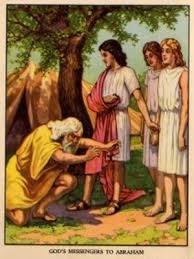Gender Dysphoria – What Does the Bible Say About It?
In today’s world, conversations around gender are complex and often deeply personal. For those seeking to understand these issues through the lens of Christian faith, a natural question arises: What does the Bible say about gender? The answer isn’t always simple, but the Bible does provide foundational principles that can guide thoughtful reflection.
1. Creation: Gender as Part of God’s Design
The Bible introduces gender in the very first chapter: “So God created mankind in his own image, in the image of God he created them; male and female he created them.” — Genesis 1:27 (NIV)
This verse highlights a few key points:
Gender—male and female—is part of God’s intentional design.
Both men and women are created in the image of God, which means they are equally valuable, dignified, and capable of reflecting God’s character.
Gender is not a mistake or afterthought; it’s woven into the creation story.
2. Equality and Distinction
While men and women are equally created in God’s image, the Bible also acknowledges differences between the sexes—biologically, relationally, and sometimes in roles. These distinctions are often emphasized in marriage and family contexts.
In Ephesians 5, Paul describes a model of mutual love and respect in marriage, using metaphors of Christ and the Church. Some interpret these verses to affirm complementary roles; others see them as cultural expressions not meant to be universally prescriptive.
It’s important to note: wherever differences are mentioned, the Bible consistently calls for love, humility, and service—not superiority or domination.
3. Jesus and Gender
Jesus’s life and teachings brought radical dignity to both men and women. In a time when women were often marginalized, Jesus:
Taught women directly (Luke 10:38–42),
Defended them publicly (John 8:1–11),
And included them in His ministry (Luke 8:1–3).
This shows that Jesus challenged gender norms that were unjust or oppressive, without discarding the idea of gender itself.
4. Paul’s Letters and Cultural Context
Some of Paul’s writings, like 1 Corinthians 11 or 1 Timothy 2, are often cited in discussions about gender roles in the church and home. These passages have been debated for centuries, with interpretations varying across denominations and cultures.
However, Galatians 3:28 offers a broad and unifying vision:
“There is neither Jew nor Gentile, neither slave nor free, nor is there male and female, for you are all one in Christ Jesus.”
This doesn’t erase gender but emphasizes unity and equality in Christ.
5. A Call to Love and Wisdom
While the Bible affirms that gender is real and meaningful, it also calls Christians to approach all people with compassion, humility, and grace. In an age where gender identity and expression are sensitive and evolving topics, the church is invited to listen well, love deeply, and speak truth with kindness.
6. Gender Dysphoria and Transgender Identity: A Compassionate Conversation
As conversations around gender deepen, many people—inside and outside the church—are grappling with questions of gender dysphoria and transgender identity. These topics are emotionally charged and often personal, so it’s essential for Christians to approach them with both theological clarity and pastoral sensitivity.
What is Gender Dysphoria?
Gender dysphoria is a psychological term describing the distress someone may feel when their gender identity (how they experience or perceive their gender) does not align with their biological sex. Some people with gender dysphoria may identify as transgender, meaning they adopt a gender identity different from their biological sex.
What Does the Bible Say?
The Bible does not specifically address modern terms like “transgender” or “gender dysphoria,” but it does speak to the nature of humanity, the reality of suffering, and the hope of restoration.
At its core, Scripture affirms that we are embodied souls—created with purpose by God (Psalm 139:13–14). Our bodies are part of that design, and there is an intrinsic connection between body and identity in the biblical view of humanity (Genesis 1:27, 2:7).
However, the Bible also acknowledges that we live in a fallen world where brokenness affects every part of our being—including our sense of self. Just as some people experience physical, emotional, or psychological pain, others may experience deep inner conflict related to gender. Scripture doesn’t minimize this kind of suffering, but meets it with the compassionate heart of Christ.
7. How Should Christians Respond?
With Compassion and Truth, Not Condemnation. It is wrong and not helpful to affirm those who are confused about their gender. If you were born a male, God also gave you a male mind, soul and spirit. If you were born a female, He gave you a female mind, soul and spirit. No amount of hormone therapy or mutilating surgery can change that. Instead a gentle compassionate truthful conversation that will help guide them back to the reality of their gender will be quite helpful. Jesus consistently moved toward people with compassion, not away from them. When someone wrestles with gender identity, the first response should not be judgment, but love. Listening to someone’s story with empathy can go a long way toward building trust and offering hope.
With Truth, Not Dismissal
Compassion doesn’t mean abandoning biblical truth. Christians believe that our bodies matter—and that gender, as designed by God, is meaningful. That said, each person’s experience is unique, and many are navigating these questions with sincerity, not rebellion. It’s important to affirm God’s design while also walking gently with those who are hurting or confused.
With Patience and Wisdom
For some, the path through gender dysphoria may include counseling, prayer, and discipleship rooted in the hope of Christ. Others may make different choices, and the church must wrestle with how to remain a place of welcome while staying faithful to biblical convictions. This tension isn’t easy, but love compels us to stay in it.
Hope and Redemption for All People
Ultimately, the Christian gospel is good news for every person—cisgender, transgender, or questioning. It tells us that our identity is not ultimately found in our feelings, our bodies, or our social labels, but in being beloved children of God through Jesus Christ.
“Come to me, all who are weary and burdened, and I will give you rest.” — Matthew 11:28
For those experiencing gender dysphoria, and for the families and churches walking with them, the message of Jesus offers hope: that in Him, there is grace for the present, healing for the broken, and a future where all things will be made new.
Final Thoughts
The Bible teaches that there are only two genders, male and female and that gender is part of God’s good creation—reflecting both equality and distinction. At the same time, the story of Scripture emphasizes love, justice, and redemption for all people, regardless of gender.
As Christians engage with questions about gender today, we’re called not just to ask what is true, but also how do we walk in love as we live out that truth. If you or anyone you know is struggling with gender dysphoria
A very helpful resource about gender dysphoria and many other topics is the Allen Jackson Podcast.






